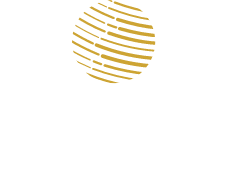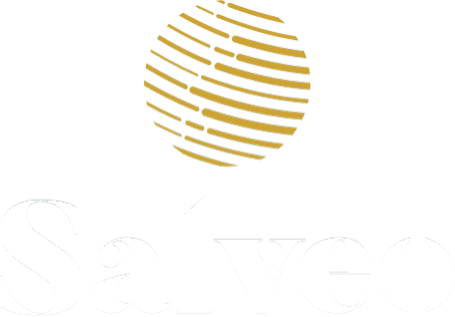Germany employer of record

Germany attracts many international companies looking to expand their activities in the European market. However, setting up a local presence can be complex, not least because of strict legal and administrative requirements. Indeed, any foreign company wishing to employ staff in Germany generally has to set up a local legal structure, which can be costly and time-consuming.
Faced with these challenges, freelance administration in Germany is emerging as an attractive alternative. This solution enables companies to develop their activities in Germany by hiring and managing local or foreign employees on their behalf, within a short operational timeframe and at a lower cost. With freelance administration, companies can save time and money while benefiting from local expertise.
What does the term EOR mean?
EOR involves the collaboration of three parties: the company providing the service, the client company and the candidate you plan to hire. Salveo Germany acts as an intermediary between employee and employer, handling the legal and regulatory aspects of immigration, employment and remuneration. However, it should be emphasized that this company assumes a shared management role, notably at administrative level, concerning the employee’s position, while the original employer or client company retains responsibility for major decisions relating to the content of the position, its development and remuneration, which it then shares with the company.
What are the advantages of freelance administration in Germany with Salveo?
There are many advantages to freelance administration in Germany:
- Professional flexibility: this gives employees a high degree of flexibility in managing their work schedules and assignments.
- Legal and social security: freelance workers benefit from a certain degree of legal and social security, as they are legally considered as employees of the freelance administration company. This gives them access to social protection, including health and unemployment insurance.
- Simplified administrative management: we take care of all administrative management, including customer invoicing, contract management and payment management, enabling employees to concentrate fully on their work.
- Professional support: freelance workers benefit from professional support and advice from the freelance administration company, which can be invaluable for the development of their career and skills.
In short, freelance administration in Germany offers you a flexible and secure solution, backed up by our administrative and professional support.
Our added value? Simplify the overall management of your human resources
As a member of the ADIT Group, Salveo is your trusted and experienced partner to support your development in Germany. With a team of local French-speaking experts and over 30 years’ experience, we have helped numerous companies manage their personnel in Germany.
Our experts offer human resources management solutions for start-ups, SMEs and multinationals operating in Germany.
We offer a complete range of freelance administration services:
- Drafting of contracts in compliance with local employment legislation,
- Assistance in obtaining work and residence permits (for foreign employees),
- Payroll management and dispatch of pay slips,
- Declaration and regular payment of social security contributions and income tax,
- Paid leave tracking,
- Business expense management,
- Processing for contract purposes,
- Support for questions relating to employment law and employee contracts.
In addition, we offer a variety of optional services, such as recruitment of new employees, accommodation in our business centers or management of employees’ international mobility (finding accommodation, enrolling children in school, car rental, etc.).
What you need to know in Germany
Types of employment contracts in Germany
There are several types of employment contract: open-ended contracts (CDI), fixed-term contracts (CDD), temporary employment contracts, full-time employment contracts, part-time employment contracts and distance work contracts.
Trial period in Germany
For a permanent contract, the maximum trial period is six months.
For fixed-term contracts of less than two years, the maximum trial period is one month. If the contract lasts between two and four years, the maximum trial period is three months. And beyond four years, the maximum trial period is six months.
Finally, the trial period for temporary employment contracts is governed by the relevant collective bargaining agreements.
Working hours and
and overtime in Germany
The standard working week in Germany is 40 hours a week over 5 days, with a maximum of 8 hours a day. However, this period can be extended to 10 hours a day if an average of 8 hours a day is maintained over a maximum period of 6 months. And employees are entitled to a minimum 30-minute break after 6 hours’ work.
Overtime is generally limited to 8 hours a week, and can be extended to 10 hours under certain conditions. Employees are generally paid at least 25% more than the normal hourly wage.
Paid vacations in Germany
Employees are entitled to one full day of rest per week, usually Sunday. However, there are exceptions for certain sectors such as retail.
In addition, they are entitled to a minimum of 20 days paid vacation per year, depending on the length of their employment. Some collective bargaining agreements provide for additional paid vacations.
Public holidays in Germany
|
New Year’s Day (Neujahrstag) |
January1st |
|
Good Friday (Karfreitag) |
April 10 |
|
Easter Monday (Ostermontag) |
April 13 |
|
Labor Day (Tag der Arbeit) |
May1st |
|
Ascension (Christi Himmelfahrt) |
May 30 |
|
Whit Monday (Pfingstmontag) |
June 9 |
|
German Unity Day (Tag der Deutschen Einheit) |
October 3 |
|
Christmas Day (Erster Weihnachtstag) |
December 25 |
|
Second Christmas Day (Zweiter Weihnachtstag) |
December 26 |
In addition to these national holidays, there are also regional holidays specific to certain federal states. These can include religious events, commemorative days or local celebrations.
Minimum wage
in Germany
In Germany, the average gross salary is between €2,200 and €4,500, depending on sector, level of experience, geographical location and company size.
The legal minimum wage is 1,584 euros per month for full-time work (based on 40 hours/week).
Termination of employment contract by employer
In Germany, the contract can be terminated by the employer for economic reasons, for reasons relating to the employee’s behavior or performance, or for personal reasons (inability to work for health reasons). Employers are generally required to give notice of termination, the duration of which is defined by collective bargaining agreements. The employee may receive severance pay if he or she has worked for the company for many years or has been dismissed for economic reasons.
NB: German law provides protection against unfair dismissal (if it is discriminatory, without just cause or violates the employee’s rights).
Receive your specialist study
+33 (0)1 84 79 17 50
09h - 18h UTC+1
62 rue de Miromesnil 75008 Paris



